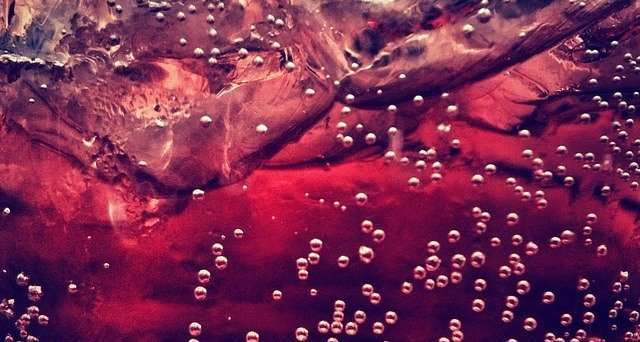The next time you tuck into a protein rich dinner, it may be a good idea to hold off on the sugary drinks. A new study published in BMC Nutrition found that a combination of sugar sweetened drinks and a protein rich meal decreases metabolic efficiency, which can lead to more fat being stored. Here to tell us more is lead author of the study Dr. Shanon Casperson.
Let’s face it, sugar tastes good. Added sugars account for approximately 16% of total energy intake. That’s around 6 tablespoons (91 grams) of added sugar every day. The largest source of added sugars in our diet is from sugar-sweetened drinks. This is why a large amount of research is focused on the health effects of these types of drinks.
The beneficial effects of protein-rich diets are well documented. Increasing protein intake increases satiety, increases metabolism and decreases energy intake. But what happens when we drink a sugar-sweetened beverage with our steak dinner? How does this change how our body processes and uses the nutrients from the meal?
To answer these questions, we asked volunteers to spend 24 hours in a metabolic chamber on two separate occasions. The metabolic chamber is a 12-by-10-foot hermetically controlled room. This allows us to measure exactly how the body is using the nutrients from the foods. By having someone stay in a metabolic chamber, we can determine how many grams of carbohydrate, protein and fat the volunteer is using and how many calories they’re burning every minute.
To fully understand how the volunteer used the nutrients from the meals, we measured oxygen consumption, carbon dioxide production and urinary nitrogen excretion. Nitrogen is a key component of protein and the amount excreted in urine provides an estimate of protein breakdown. Once protein utilization is known, the amount of carbohydrate and fat utilization can be correctly calculated from respiration.
For all testing procedures, the volunteers ate the exact same foods throughout the day. During one of the visits, they ate a diet consisting of 15% protein and for the other visit they ate a diet consisting of 30% protein. At each meal, they had either a sugar-sweetened drink or an artificially sweetened drink. After each meal, we asked the participant about their hunger and desire to eat certain types of foods.
The body only expended 80 of the 120 kcals that was provided by the sugar-sweetened drink
We found that drinking a sugar-sweetened drink with a meal significantly decreases fat use and diet-induced thermogenesis (heat production). And when we paired the sugar-sweetened drink with a protein-rich meal, the combination further decreased fat use and diet-induced thermogenesis by more than 40%. Additionally, we found that, over the course of a day, the body only expended 80 of the 120 kcals that was provided by the sugar-sweetened drink, thus creating a 40-kcal surplus independent of how much protein was in the meal.
These results highlight the impact that consuming a sugar-sweetened drink can have on energy balance and fat use. One implication of the results is that the body’s reduced metabolic efficiency after drinking a sugar-sweetened beverage can lead to a greater tendency to make and store fat. Our findings provide further insight into the potential role of sugar-sweetened drinks in the etiology of obesity.

DiskoBonez on July 22nd, 2017 at 13:26 UTC »
To put it more positively, the best way to store fat is to combine sugary drinks with a protein rich dinner.
infinite0ne on July 22nd, 2017 at 13:09 UTC »
How about just avoid sugary drinks in general.
aigroti on July 22nd, 2017 at 12:48 UTC »
So are sugary protein shakes pretty bad then?